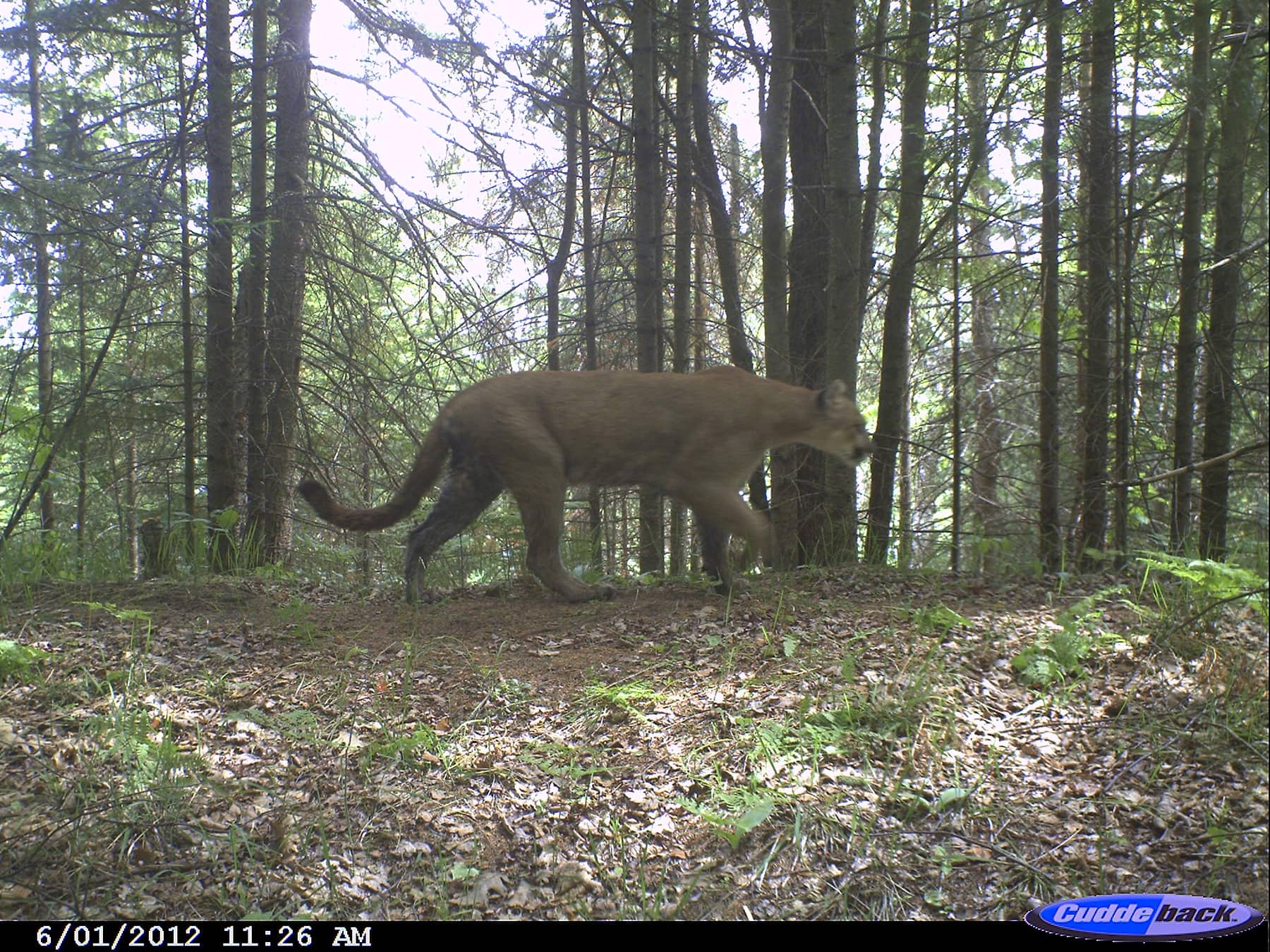Cougar Photographed by Michigan Trail Cam Suggests Resident Population in Upper Peninsula
OutdoorHub Reporters 07.19.12


Multiple appearances of cougars over a long period of time has the Michigan Wildlife Conservancy convinced that cougars (also known as mountain lions) in the state are a resident breeding population and not just passing through.
For several years, numerous Michigan counties have confirmed cougar sightings. For example, Baraga, Houghton, Keweenaw and Ontonagon counties have reported a cougar sightings since September of 2011.
Across the country, states are reporting higher numbers of cougars and sightings in areas where the animal’s population was long thought to be extinguished. Officials estimate that there are currently about 30,000 cougars alive in the United States thanks to successful conservation efforts of the cougar’s prey, such as mule deer. Some states have reclassified the cougar to a managed game species. The press release below has more information on the status of the cougar population in Michigan.
Original press release issued by the Michigan Wildlife Conservancy on July 18, 2012:
The Michigan Wildlife Conservancy (MWC), a non-profit organization based in Bath, near Lansing, recently confirmed the presence of a cougar in southern Marquette County. The cougar was photographed by a cased and padlocked trail camera on private property on June 1, 2012. The property owners will also share their information with the Michigan Department of Natural Resources (MDNR) but do not wish to be publicly identified.
Dr. Patrick Rusz, Director of Wildlife Programs for the Conservancy, and Michael Zuidema, a retired DNR forester, verified the trail camera’s location on a well-worn wildlife trail atop a wooded ridge. The camera has also photographed wolves, coyotes, fishers and numerous other species at the same site over a four year period.
The MWC is publicizing this photograph because it may be the best, clearest photograph of a wild Michigan cougar ever taken. It is also unusually interesting because Mr. Zuidema has recorded over twenty credible cougar sightings in the same vicinity since the 1970s. These include several sightings within a few miles of the trail camera location.
Dr. Rusz stated that “the long history of sighting reports in the area indicates the cougar photographed on June 1 may be part of a resident population rather than a wandering cat from a western state.” Dr. Rusz has studied cougars for the Conservancy for 14 years and is co-author of a peer-reviewed study that confirmed cougars in both peninsulas of Michigan by analyses of DNA in droppings. He has also identified a long list of additional physical evidence dating back to 1966, and notes that Michigan State College zoologist Richard Manville documented several cougar sightings or incidents when he inventoried the fauna of Marquette County’s Huron Mountains from 1939 to 1942.
The large volume of recent Michigan evidence includes fifteen MDNR confirmations since the agency formed a cougar team of specially trained biologists in 2008. The most recent MDNR confirmation occurred last May when a cougar was photographed with a hand-held camera near Skanee in Baraga County. That photograph was taken about 50 miles north of the Marquette County trail camera location.
“The MDNR cougar team should now look at the very good evidence of a remnant cougar population collected before 2008,” said Bill Taylor, President of the Conservancy. “They could still easily verify cougar photos taken in the 1990’s in Alcona and Oscoda Counties in the Lower Peninsula and some others. The vegetation and other landmarks needed to confirm the photos are still there.”
The Michigan Wildlife Conservancy is a non-profit citizens group established in 1982 to restore Michigan’s wildlife legacy. The Conservancy has restored more than 8,200 acres of wetlands, 2,500 acres of prairies and grasslands, and hundreds of miles of trout streams, and helped with several rare species recoveries and the creation of many backyard habitats. The Conservancy website, www.miwildlife.org, highlights some of the completed habitat restorations and other work.

